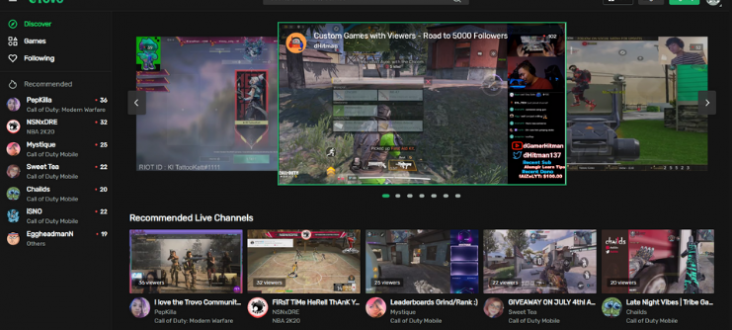

Like many in newly powerful tech hubs from Shenzhen to Silicon Valley, Yao is an engineer at heart, excited to discuss the technologies and various quirks going into his games, yet slightly more reticent in discussing the implications of reaching hundreds of millions of consumers on a daily basis.Īt its peak in 2017, Honor of Kings had 200 million monthly active users, and in 2018 it pulled in nearly $ 2 billion in profits. “Social relationships are the glue that keeps them playing and highlyĮngaged.” Domestic challenges, global opportunities Games,” said Li Bin, general manager of business development and producer at Changyou “Tencent’s social products are inextricably tied to TiMi’s Unlimited marketing and distribution channels to Chinese consumers. The game’s integration with Wechat also provided nearly Shorter attention spans, this means shorter games.” More social and interactive elements in their games.” Yao said. “Our players are looking for more casual gameplay and want Namely, they understood that simplicity and short games were the key to mass appeal. He and his team had unique insights into Chinese consumers. In 2015, Yao and TiMi Studios released Honor of Kings, a battle game pitting teams of live users against one another, as a smartphone app.

With widespread smartphone ownership rising in the early 2010’s, this tendency for casual games in the Chinese market made the transition to mobile gaming a logical next step, and Yao’s focus shifted completely to smartphones.
#SOURCES TENCENT TIMI STUDIOS HONOR CALL PC#
“Their taste has been cultivated by these companies… In China, people also don’t want a difficult experience, they don’t want the game to be too stressful.”Īfter “basically starting from scratch,” Yao achieved his first success in the gaming industry after being hired at Tencent, where he and his team built a wildly popular and accessible racing game called QQ Speed for the PC in 2004 it remains one of China’s top games. Sebastian Francois, who has worked in the Chinese gaming industry for the last decade, said that because China didn’t have gaming consoles, consumers gravitated to a more casual experience. In China, gaming consoles like X-Boxs and Playstations were banned from 2000-2015, meaning that game developers like Yao started out creating PC games. This inspiration is telling, in that much of Yao’s career since has been devoted to creating highly functioning games for restrictive technological systems. “Diablo still ran smoothly on my computer and it was very impressive to me.”
#SOURCES TENCENT TIMI STUDIOS HONOR CALL WINDOWS#
The first game Yao played was Diablo, and he was floored that a complex computer game script could actually work on his wonky Windows 95 operating system. And domestically, once rapid growth has slowed to a halt due to a government backlash over the impact of gaming on Chinese society.Ĭhina’s game companies will need to chart a delicate path, producing more patriotic and controlled games for the home market, while using their early focus on mobile gaming to their advantage as global gaming gravitates towards smartphones. Tencent has been expanding into companies and markets around the world, yet is facing increased international criticism for censoring political content. Now, however, after years of success, the Chinese gaming industry sits at a crossroads. Indeed, even though China’s technology giant Tencent is better known for their messaging service WeChat, games are the company’s biggest revenue driver. for the title of the world’s largest gaming market.

Since the early 2000’s, Yao and Timi Studios have been responsible for building some of the most played games in China, a market that vies with the U.S. Yet all of the fuss makes sense: Yao is arguably the most influential game developer in the world’s largest gaming company, just as Chinese gaming is hoping to bring its innovations to a global market. We meet in his studio’s colorful offices strewn about with gaming consoles, posters from the company’s newest titles, and inspirational tech slogans that feel out of place in a nondescript Shenzhen hi-rise.Īs we sit down, he reviews the extensive notes he’s prepared, and a sizable public relations team-including one member on a video feed from Beijing-makes final preparations.


 0 kommentar(er)
0 kommentar(er)
